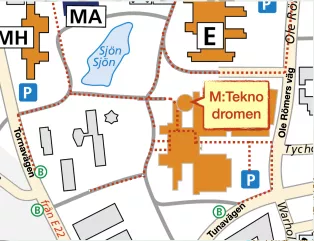Sep
Regulating High Risk AI in EU

Ensuring trust, safety, security, innovation, integrity, democracy, growth, sustainability, and accountability?
With the proposed AI Act, the EU seeks to ensure trustworthy AI in the European single market. Taken together with existing and planned measures such as the GDPR, Digital Service Directive, Data Governance Directive, AI Liability Directive, the EU seeks to create a comprehensive regulatory framework for our fast developing digital world – a new code napoleon for the digital age, which will ensure safety, security, integrity, democracy, growth, sustainability, and accountability, all the while promoting innovation and a facilitating integration in a vibrant single market.
The AI Act takes a ‘Risk-Based Approach’. AI applications will be regulated if, and only if, they pose a risk to fundamental rights and important public interests. The applications that are considered ‘High Risk’ will be subject to extensive regulatory burdens. This Workshop will bring together legal experts to explore what ‘High Risk’ AI means, how the AI Act proposes to regulate High Risk AI, and what public authorities, industry, scholars and the general public need to know before the Act comes into force.
When: 26 September 2023
- in Lund: 9.30 to 16.00 CET
- online: 9.55 to 12.00 and 13.00 to 15.30 CET
Where: Teknodromen, M-building, Ole Römers väg 1, Lund, Sweden and Online. We will send a link some days before the event.
Spoken language: English
Registration: To participate is free of charge. Sign up for online or on-site participation at ai.lu.se.
Programme
09.30 Fika & registration
09.55 Online meeting open
10.00 Morning session - also online
Introduction with overview of the AI Act
Eduardo Gill-Pedro, Associate professor, Associate senior lecturer, Department of Law, Lund University
Remote biometric identification systems
Dr. Els Kindt, Legal Researcher and Associate Professor, KU Leuven Centre for IT & IP Law (CITIP)
Systems used in Critical Infrastructure
Johan Axhamn, Senior lecturer, Department of Business Law, Lund University
Systems used in education and vocational training
Liane Colonna, Associate Professor, Department of Law, Stockholm University
Generative and Foundation AI
Stefan Larsson, Senior lecturer, Department of Technology and Society, Lund University
Access to essential services and public services
Sofia Ranchordas, Professor of Administrative Law, Tilburg University and guest researcher Lund University
Q&A + panel discussions
12.00 Lunch
13.15 Afternoon session - also online
Law Enforcement
Markus Naarttijärvi, Professor at Department of Law, Umeå University
Migration, asylum and border control
Dr. Niovi Vavoula, Senior Lecturer in Migration and Security at Queen Mary, London.
Administration of justice
Petra Gyöngyi, Associate senior lecturer, Department of Law, Lund University
Employment and recruitment
Carlotta Rigotti Post-doctoral researcher eLaw Center for Law and Digital TechnologiesLeiden University
Standard setting for High Risk AI
Rebecca Schmidt, Associate Professor at the Oslo Metropolitan University
Conclusions and round-up based on audince questions in the zoom chat
Where do we go from here?
15.30 Q&A, fika and mingle
Registration
To participate is free of charge. Sign up for online or on-site participation at https://www.ai.lu.se/2023-09-26/registration
Organisation
- Eduardo Gill-Pedro, Associate senior lecturer, Department of Law, Lund University
- Johan Axhamn, Senior lecturer, Department of Business Law, Lund University
- Jonas Ledendal, Senior lecturer, Department of Business Law, Lund University
- Petra Gyöngyi, Associate senior lecturer, Department of Law
- Stefan Larsson, Senior lecturer, Department of Technology and Society
- jonas [dot] wisbrant [at] control [dot] lth [dot] se (subject: AI_in_EU_LAW_26_sept) (Jonas Wisbrant), AI Lund
About the event
Location:
Teknodromen, Lund in Sweden and online.
Language:
In English
Contact:
Jonas [dot] Wisbrant [at] control [dot] lth [dot] se


